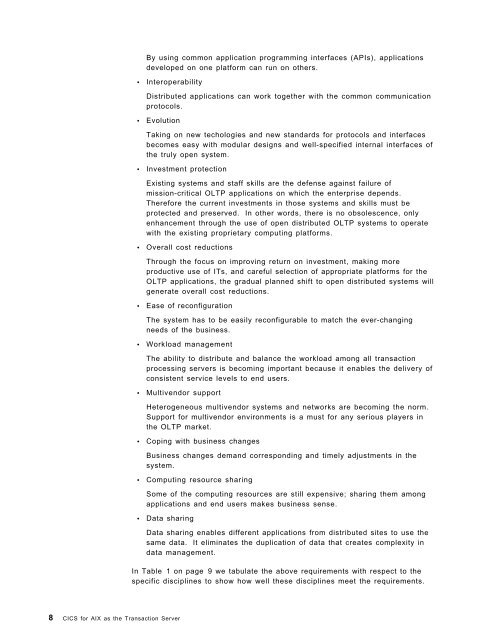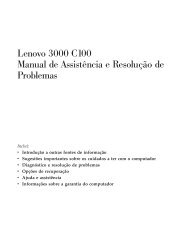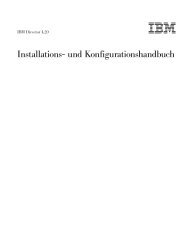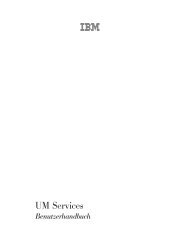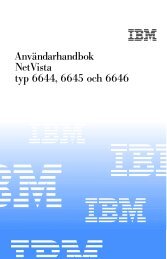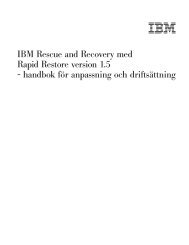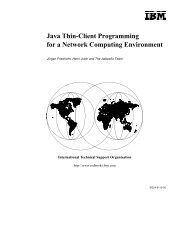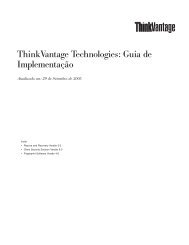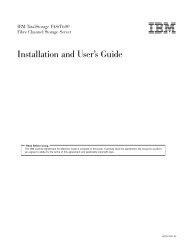Addressing OLTP Solutions with CICS: The Transaction Server ... - Ibm
Addressing OLTP Solutions with CICS: The Transaction Server ... - Ibm
Addressing OLTP Solutions with CICS: The Transaction Server ... - Ibm
You also want an ePaper? Increase the reach of your titles
YUMPU automatically turns print PDFs into web optimized ePapers that Google loves.
By using common application programming interfaces (APIs), applications<br />
developed on one platform can run on others.<br />
• Interoperability<br />
Distributed applications can work together <strong>with</strong> the common communication<br />
protocols.<br />
• Evolution<br />
Taking on new techologies and new standards for protocols and interfaces<br />
becomes easy <strong>with</strong> modular designs and well-specified internal interfaces of<br />
the truly open system.<br />
• Investment protection<br />
Existing systems and staff skills are the defense against failure of<br />
mission-critical <strong>OLTP</strong> applications on which the enterprise depends.<br />
<strong>The</strong>refore the current investments in those systems and skills must be<br />
protected and preserved. In other words, there is no obsolescence, only<br />
enhancement through the use of open distributed <strong>OLTP</strong> systems to operate<br />
<strong>with</strong> the existing proprietary computing platforms.<br />
• Overall cost reductions<br />
Through the focus on improving return on investment, making more<br />
productive use of ITs, and careful selection of appropriate platforms for the<br />
<strong>OLTP</strong> applications, the gradual planned shift to open distributed systems will<br />
generate overall cost reductions.<br />
• Ease of reconfiguration<br />
<strong>The</strong> system has to be easily reconfigurable to match the ever-changing<br />
needs of the business.<br />
• Workload management<br />
<strong>The</strong> ability to distribute and balance the workload among all transaction<br />
processing servers is becoming important because it enables the delivery of<br />
consistent service levels to end users.<br />
• Multivendor support<br />
Heterogeneous multivendor systems and networks are becoming the norm.<br />
Support for multivendor environments is a must for any serious players in<br />
the <strong>OLTP</strong> market.<br />
• Coping <strong>with</strong> business changes<br />
Business changes demand corresponding and timely adjustments in the<br />
system.<br />
• Computing resource sharing<br />
Some of the computing resources are still expensive; sharing them among<br />
applications and end users makes business sense.<br />
• Data sharing<br />
8 <strong>CICS</strong> for AIX as the <strong>Transaction</strong> <strong>Server</strong><br />
Data sharing enables different applications from distributed sites to use the<br />
same data. It eliminates the duplication of data that creates complexity in<br />
data management.<br />
In Table 1 on page 9 we tabulate the above requirements <strong>with</strong> respect to the<br />
specific disciplines to show how well these disciplines meet the requirements.


